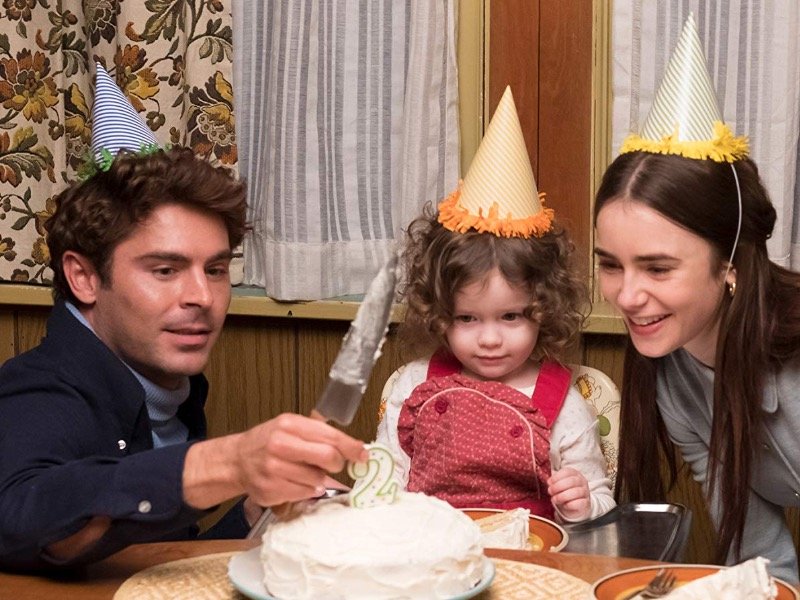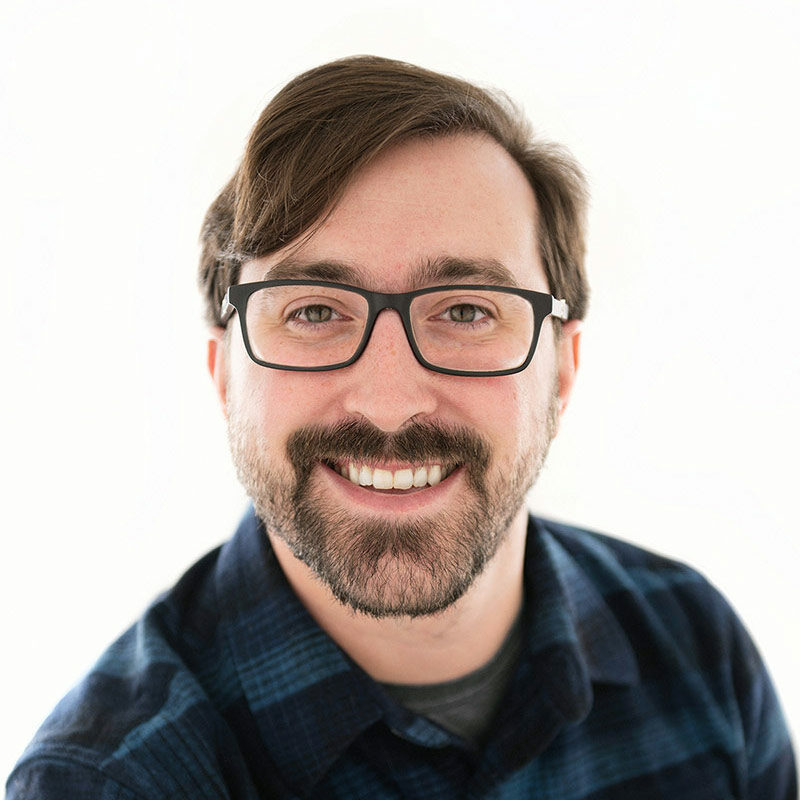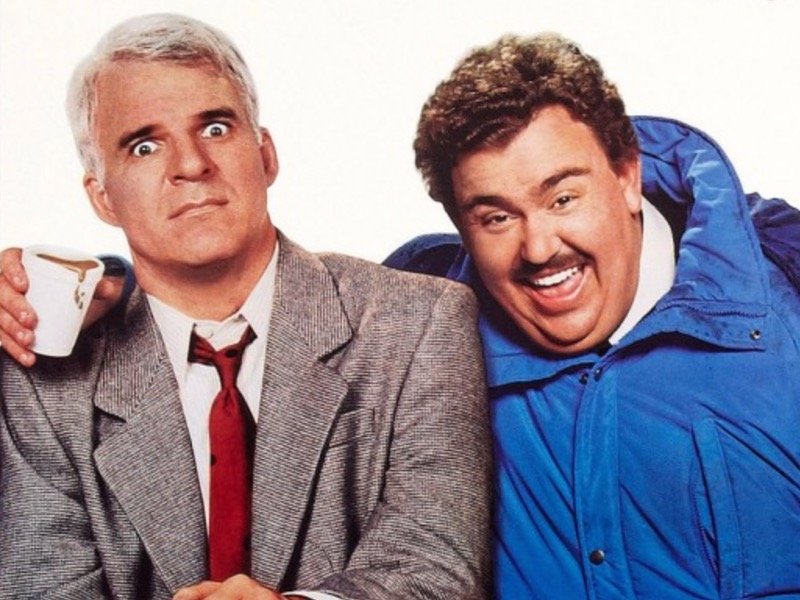Finding a screening of a Netflix movie on the big screen is a lot like finding a unicorn. But unicorns apparently exist this weekend as the Oriental Theatre will show Netflix's new serial killer drama, "Extremely Wicked, Shockingly Evil and Vile," on Saturday night at 7 p.m.
Part of this special booking likely comes from merely the Oriental routinely snagging some really interesting and one-of-a-kind showings. (Stay tuned for screenings of "Twister," "Night of the Creeps," "Mermaids," "The Band Wagon" and more in the upcoming month.) But you can also thank screenwriter Michael Werwie, a Milwaukee native bringing his big-screen debut – one close to a decade in the making – back to his hometown just one day after its wide release on Netflix, complete with a post-film Q&A with the up-and-coming Hollywood scribe.
It's a feel-good angle on a decidedly less-than-feel-good movie, following a young woman (Lily Collins) who begins to suspect that her longtime boyfriend (Zac Efron) may be the man responsible for a nationwide slew of horrific serial killings. His name? Ted Bundy. But while it's a grim tale about a terrifying and notorious chapter in American history, according to Werwie, at its heart, "Extremely Wicked, Shockingly Evil and Vile" is something completely different from the usual serial killer true-crime saga: a love story.
Before Saturday's screening, we chatted over the phone about his unexpected angle on the Ted Bundy story, the equally unexpected famous face playing the infamous murderer, working with the most polarizing studio in today's movie industry and what it means to bring his first feature film back to Brew City.
OnMilwaukee: What drew you to the story of Ted Bundy and these extremely wicked, shockingly evil and vile events?
Michael Werwie: Honestly, I never intended to write a movie about Ted Bundy. So I wrote it nine years ago. I was bartending in L.A., and I was an aspiring writer, trying to break into the business. And I was writing what seemed like a smarter script that was more commercial – it was a bigger action movie – about some subject matter that I just didn’t care about, and I found myself blocked. I didn’t care to keep working on it.
So I was procrastinating, and I’ve always been a true crime fan, so I picked up a book about Ted Bundy. And I was just so captivated by his story. I was surprised I didn’t know anything about it. The thing that I found most compelling about his story were all the non-violent details, the domestic details. And so I saw an interesting opportunity to tell a serial killer story with no serial killing in it.
It’s not a violent movie; in fact, it’s a love story. We go into the movie through the perspective of his long-time girlfriend Liz and ultimately the American public as we witness his Florida trial – the first nationally televised trial in American history. To me, it was a con man story. It’s a story about seduction and deception and manipulation and ultimately betrayal. And in the end, it’s about truth. And that was really interesting to me. I thought it was a more psychological and mature way at looking at an otherwise familiar story.
The serial killer genre has a lot of wonderful movies and a lot of not-so-wonderful movies, but it’s really hard to do something fresh and unique in that genre. And I was able to find a new way in. I’m really proud of the point of view, because I think it’s respectful and sensitive to the subject matter, because it doesn’t glorify any of the horrible crimes of this person.
Yeah, that’s the tricky line with a movie like this. How do you try to do that – and were there parts of the story where you were like, "I’m not sure I can pull that off?"
We always had the intention of telling an honest depiction of the events as they were at the time. It’s not a story about body counts or stalking victims; it’s not a detective procedural. It is a love story, a very domestic story. And as long as we stayed true to the characters and to those themes, we didn’t worry about crossing a line. We were sensitive and conscious to the fact, of course, that it could be portrayed as such, but I think a lot of the reaction comes from people’s assumptions about what the film is as opposed to what it actually is. And when they see it, typically they can see that the intention was to tell a psychological character drama.
But it is a delicate line, you’re absolutely right. And if we’re successful, the betrayal feels powerful because we bought into the love story. The central question of the movie is whether or not that love is real. And there’s no right answer. Everybody has their own opinion, and they’re all equally valid. I think that’s the interesting conversation to be had after the movie: Was the love ever real, can a psychopath be capable of love and what does that mean for humanity? That’s a fascinating conversation to explore.
What were your first thoughts on the casting Zac Efron, a big name who carries some baggage for audiences?
I think it was the exact right perfect casting choice. I would not have it any other way – and honestly I can’t even see it any other way. I feel like he’s born to play this role, and he’s so chameleonic in his performance. I think he’s going to shock a lot of people in the way he was able to morph into the role and also just his talent as an actor. The full talent of Zac Efron has yet to be shown to the world; he’s just going on to bigger and better things. I was so excited because it was a stretch for him; it was a completely different role from anything people knew him about. It was a more mature role for him, and I thought it was really exciting.
Given his public persona and what people think they know about him actually helped the experience of the movie. You bring a lot of what you think you know about Zac the person into this movie, and it informs the way that he plays it and the way that the audience experiences it. So it was exciting; the cast is one of the things I’m most proud of in this movie.
It’s interesting because the director, Joe Berlinger, also directed the Netflix documentary mini-series on Ted Bundy. How did that all come together, and what was that like?
Joe came on about two years ago. He began work on that while we were doing this concurrently, and it was really interesting because they’re kind of complementary projects in a way – one explores the more documentary side of it and our movie is the more emotional narrative version of it all. I think they go hand-in-hand, almost as companion pieces if you want the complete Ted Bundy picture. I think he saw an opportunity to tell a human story in addition to the historical facts that he was exploring in the documentary.
And just given his history as a documentary filmmaker, he’s one of the best documentarians working today. His work is incredible, and he has a lot of experience in the criminal justice system – more so on the other side with the wrongfully accused. He’s on the other side of death row on this one, with an actually guilty convict, exploring similar themes but in a more deceptive, manipulative manner.
What’s it been like working with Netflix – not to call it controversial, but certainly one of the big stories in Hollywood right now?
Netflix has really been impressive in that they’re filling a gap in the movie market. These types of challenging, "indie" films that the studios used to make in the ‘70s, ‘80s and ‘90s are no longer getting made, and companies like Netflix are coming in and filling the supply chain for these types of stories, which are still in demand. These are the movies that I grew up loving, and what a lot of people that I know grew up watching and loving, but unfortunately the market forces have been constrictive in the last decade or so.
So Netflix has been wonderful. They get involved with creative people that they believe in, and they’re largely hands-off. When it comes to marketing and positioning movies, they’re some of the best in the business. They’ve been wonderful at getting the word out; there’s tremendous awareness about the movie.
And the great thing is that it goes everywhere all the time. They have something like 120 million subscribers or so, and everybody gets it. It gets ported to wherever they are. And that’s really exciting. As filmmakers, you want eyeballs on your movie – and it’s getting harder and harder to get people out of their house to drive to the theater, get a babysitter, pay for the tickets. So the Netflix screening model is wonderful as far as distribution, because it means everybody has access to it and it’s very easy to see.
Do you still miss having that big-screen, traditional release?
I personally miss it. I love the communal experience of going into a dark theater with a bunch of strangers and having a shared emotional experience. Nothing can replace that. But the reality is, in this day and age, a lot of people just don’t do that anymore. I’m a cinephile, a film lover. I always have been and will continue to do that. For personal reasons, I love seeing it on the big screen, and I will do that any opportunity that I get.
But I love that my family and friends, who live in a city in Wisconsin where this wouldn’t play in a theater anywhere near them, they can just log onto their computer or TV and see if anytime they want. It offers convenience, it offers practicality and it offers choice. You can watch it whenever you feel like it.
What’s next for you after "Extremely Wicked, Shockingly Evil and Vile"?
An adaptation of "Lost Girls" will be my next movie. That is finished; we’re actually in post-production right now and will come out on Netflix later this year. It’s directed by Liz Garbus, who’s another phenomenal documentary filmmaker, and stars Amy Ryan and Gabriel Byrne. I’m really proud of it, really excited about it, and hopefully it’ll be out later this year.
Anything else on the radar?
I’m developing a TV show. That’s in its early stages right now; I’m writing the pilot. And I’m writing a new feature screenplay that I’m hoping to make my directorial debut. But again, I’m in a work mode right now and the goal right now is just to get it finished.
What’s it feel like to bring this movie to your hometown screen?
It is a dream come true. I have a large contingent of family and friends who are coming to the screening on Saturday – everybody from my immediate family to my large extended family from Kenosha, old grade school teachers and friends from childhood. It feels like a homecoming of sorts.
I began writing when I was five or six years old, and I’ve been pursuing this my entire life. I’ve had such a great support system all along the way from family, friends and teachers, and to be able to share this with them in a movie theater that I grew up going to – I saw a lot of movies at the Oriental Theatre during my formative years – I could not think of a more exciting way to end this incredible journey that I’ve been on with this film in particular. I’m excited for everybody that I’ve known for a long time to see the hard work and passion up on the screen, and know that their encouragement really led to somewhere special for me.
As much as it is a gigantic cliché to say that one has always had a passion for film, Matt Mueller has always had a passion for film. Whether it was bringing in the latest movie reviews for his first grade show-and-tell or writing film reviews for the St. Norbert College Times as a high school student, Matt is way too obsessed with movies for his own good.
When he's not writing about the latest blockbuster or talking much too glowingly about "Piranha 3D," Matt can probably be found watching literally any sport (minus cricket) or working at - get this - a local movie theater. Or watching a movie. Yeah, he's probably watching a movie.







